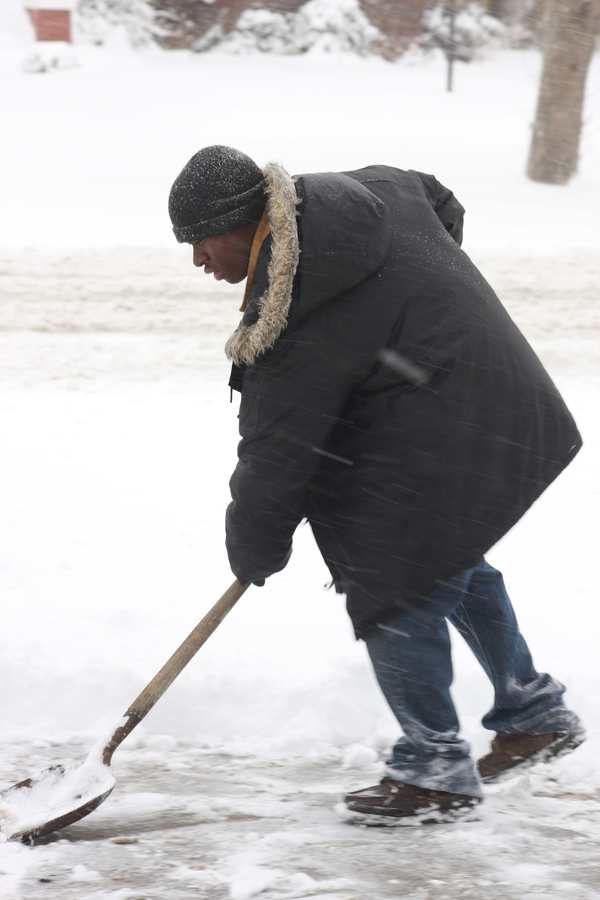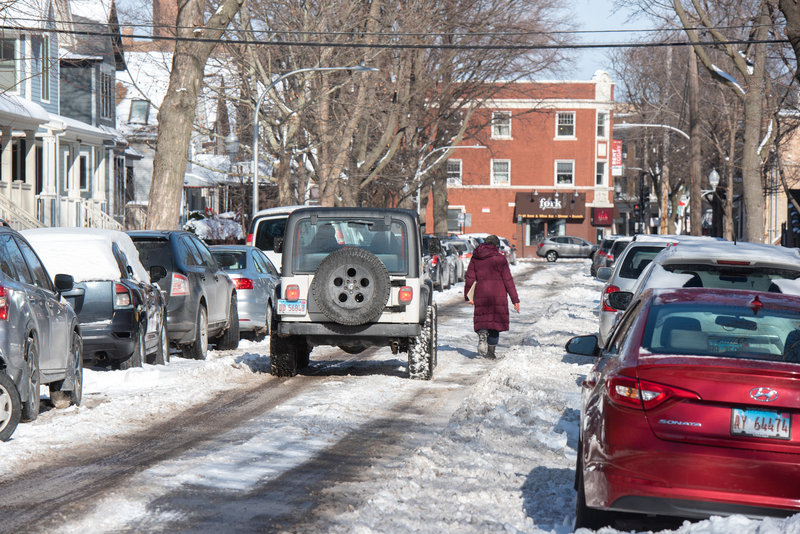Winter in Chicagoland means clearing those sidewalks of snow so that pedestrians have safe walkways to traverse during the winter.
Shoveling sidewalks is not only the neighborly thing to do, but it’s also the law in some places, including Chicago.
While we strongly support the effort to make sidewalk snow removal in Chicago a municipal service, snow removal—for now—continues to be the responsibility of the property owner.
According to Chicago’s municipal code, property owners must create a 5-foot-wide path free of any snow on their sidewalks, including crosswalk ramps attached to the sidewalks. They should not push snow into the streets, bike lanes, crosswalks, bus stops, train stations, alley entrances, and Divvy stations.
The Chicago ordinance requires property owners to clear snow from their sidewalks every day. For daytime snowfall, sidewalks must be cleared by 10 p.m. For nighttime snowfall, snow must be removed from the sidewalks by 10 a.m.
Chicago residents can report property owners who fail to shovel their sidewalks by calling 311 or submitting a service request online.
REPERCUSSIONS OF UNCLEARED SIDEWALKS
Removing snow from sidewalks is vital to ensuring the safety of everyone, especially seniors, children, and people with disabilities.
Uncleared sidewalks force pedestrians to walk or roll in the streets — a dangerous endeavor for both pedestrians and motorists.

In addition, lack of shoveled sidewalks may prevent people from walking or using wheelchairs at all. When people can’t navigate the sidewalks safely, they may be prevented from accessing essential services, such as healthcare and groceries. Snow-laden sidewalks may also encourage residents to take unnecessary car trips.
INCREASING AWARENESS
While Chicago regulates snow removal, the laws in communities outside the city vary. Some suburbs like Forest Park, Wilmette, Winnetka, and Glencoe clear all public sidewalks for residents. (We would love to see a similar service in Chicago; see below) Other towns and cities do not have any laws about snow removal. Check your local community to see what the laws are.
In the meantime, we ask that you remind your neighbors about the importance of shoveling or thank them for doing their part in keeping the sidewalks free of snow.
The Chicago Department of Transportation produces printable door hangers in English and Spanish. The door hangers remind residents that shoveling snow is required by law and how wide, clear paths provide safety for everyone.
RESOURCES
Some Chicago ward offices offer shoveling assistance, and you can call your ward office to help shovel snow for neighbors in need, seniors, and people with disabilities.
Here are a few shoveling tips from the City of Chicago and the Village of Bloomingdale.
PLEASE SUPPORT #PLOWTHESIDEWALKS
Unfortunately, when the snow falls, you see that the current system is not working. Chicago’s century-and-a-half old policy that requires residents, business owners, and property managers to keep their sidewalks clear during the winter fails so many people, especially the most vulnerable. Some blocks are appropriately shoveled while others remain impassable under layers of snow and ice.
The good news is that we’re on the way to better snow removal.
In July 2023, the Plow the Sidewalks Pilot Program ordinance passed in city council 49-1.
In May, 2024, city officials unveiled recommendations for a Plow the Sidewalks Pilot Program. The recommendations outline strategies for implementing sidewalk snow removal as a municipal service.
While the pilot initiative was only partially funded by the 2025 city budget, the program represents a significant shift in Chicago’s approach to winter sidewalk maintenance, addressing longstanding concerns about inconsistent snow clearance across the city. We hope to see forward momentum continue with this initiative.
Once the pilot expands into a city-wide program, it will be an enormous benefit to people with disabilities, senior citizens, and families with strollers and children, as well as delivery workers and anyone who needs access to sidewalks as a means of transportation and exercise.
We applaud the progress of this campaign as it continues to make a powerful case for the economic, safety, and environmental benefits that universal snow removal can bring to our city.

